- Home
- Rabindranath Tagore
Letters From a Young Poet 1887 1895
Letters From a Young Poet 1887 1895 Read online
Rabindranath Tagore
LETTERS FROM A YOUNG POET 1887–1895
Translated from the Bengali by Rosinka Chaudhuri
Contents
About the Author
Dedication
Note on Transliteration
List of Bengali Months and Seasons
Introduction
Letters
Chapter 1
Chapter 2
Chapter 3
Chapter 4
Chapter 5
Chapter 6
Chapter 7
Chapter 8
Chapter 9
Chapter 10
Chapter 11
Chapter 12
Chapter 13
Chapter 14
Chapter 15
Chapter 16
Chapter 17
Chapter 18
Chapter 19
Chapter 20
Chapter 21
Chapter 22
Chapter 23
Chapter 24
Chapter 25
Chapter 26
Chapter 27
Chapter 28
Chapter 29
Chapter 30
Chapter 31
Chapter 32
Chapter 33
Chapter 34
Chapter 35
Chapter 36
Chapter 37
Chapter 38
Chapter 39
Chapter 40
Chapter 41
Chapter 42
Chapter 43
Chapter 44
Chapter 45
Chapter 46
Chapter 47
Chapter 48
Chapter 49
Chapter 50
Chapter 51
Chapter 52
Chapter 53
Chapter 54
Chapter 55
Chapter 56
Chapter 57
Chapter 58
Chapter 59
Chapter 60
Chapter 61
Chapter 62
Chapter 63
Chapter 64
Chapter 65
Chapter 66
Chapter 67
Chapter 68
Chapter 69
Chapter 70
Chapter 71
Chapter 72
Chapter 73
Chapter 74
Chapter 75
Chapter 76
Chapter 77
Chapter 78
Chapter 79
Chapter 80
Chapter 81
Chapter 82
Chapter 83
Chapter 84
Chapter 85
Chapter 86
Chapter 87
Chapter 88
Chapter 89
Chapter 90
Chapter 91
Chapter 92
Chapter 93
Chapter 94
Chapter 95
Chapter 96
Chapter 97
Chapter 98
Chapter 99
Chapter 100
Chapter 101
Chapter 102
Chapter 103
Chapter 104
Chapter 105
Chapter 106
Chapter 107
Chapter 108
Chapter 109
Chapter 110
Chapter 111
Chapter 112
Chapter 113
Chapter 114
Chapter 115
Chapter 116
Chapter 117
Chapter 118
Chapter 119
Chapter 120
Chapter 121
Chapter 122
Chapter 123
Chapter 124
Chapter 125
Chapter 126
Chapter 127
Chapter 128
Chapter 129
Chapter 130
Chapter 131
Chapter 132
Chapter 133
Chapter 134
Chapter 135
Chapter 136
Chapter 137
Chapter 138
Chapter 139
Chapter 140
Chapter 141
Chapter 142
Chapter 143
Chapter 144
Chapter 145
Chapter 146
Chapter 147
Chapter 148
Chapter 149
Chapter 150
Chapter 151
Chapter 152
Chapter 153
Chapter 154
Chapter 155
Chapter 156
Chapter 157
Chapter 158
Chapter 159
Chapter 160
Chapter 161
Chapter 162
Chapter 163
Chapter 164
Chapter 165
Chapter 166
Chapter 167
Chapter 168
Chapter 169
Chapter 170
Chapter 171
Chapter 172
Chapter 173
Chapter 174
Chapter 175
Chapter 176
Chapter 177
Chapter 178
Chapter 179
Chapter 180
Chapter 181
Chapter 182
Chapter 183
Chapter 184
Chapter 185
Chapter 186
Chapter 187
Chapter 188
Chapter 189
Chapter 190
Chapter 191
Chapter 192
Chapter 193
Chapter 194
Chapter 195
Chapter 196
Chapter 197
Chapter 198
Chapter 199
Chapter 200
Chapter 201
Chapter 202
Chapter 203
Chapter 204
Chapter 205
Chapter 206
Chapter 207
Chapter 208
Chapter 209
Chapter 210
Chapter 211
Chapter 212
Chapter 213
Chapter 214
Chapter 215
Chapter 216
Chapter 217
Chapter 218
Chapter 219
Chapter 220
Chapter 221
Chapter 222
Chapter 223
Chapter 224
Chapter 225
Chapter 226
Chapter 227
Chapter 228
Chapter 229
Chapter 230
Chapter 231
Chapter 232
Chapter 233
Chapter 234
Chapter 235
Chapter 236
Chapter 237
Chapter 238
Chapter 239
Chapter 240
Chapter 241
Chapter 242
Chapter 243
Chapter 244
Chapter 245
Chapter 246
Chapter 247
Chapter 248
Chapter 249
Chapter 250
Chapter 251
Chapter 252
Footnotes
Introduction
Chapter 1
Chapter 2
Chapter 3
Chapter 4
Chapter 5
Chapter 6
Chapter 10
Chapter 14
Chapter 19
Chapter 20
Chapter 25
Chapter 27
Chapter 28
Chapter 30
Chapter 34
Chapter
35
Chapter 36
Chapter 44
Chapter 49
Chapter 55
Chapter 61
Chapter 63
Chapter 70
Chapter 71
Chapter 75
Chapter 77
Chapter 86
Chapter 92
Chapter 110
Chapter 117
Chapter 123
Chapter 144
Chapter 151
Chapter 152
Chapter 159
Chapter 177
Chapter 180
Chapter 191
Chapter 193
Chapter 197
Chapter 215
Chapter 217
Chapter 218
Chapter 222
Notes
Acknowledgements
Read More
Follow Penguin
Copyright Page
PENGUIN MODERN CLASSICS
Letters from a Young Poet
RABINDRANATH TAGORE (1861–1941) was a key figure of the Bengal Renaissance. He started writing at an early age and by the turn of the century had become a household name in Bengal as a poet, a songwriter, a playwright, an essayist, a short-story writer and a novelist. In 1913 he was awarded the Nobel Prize for Literature and his verse collection Gitanjali came to be known internationally. At about the same time he founded Visva-Bharati, a university located in Santiniketan, near Kolkata. Called the ‘Great Sentinel’ of modern India by Mahatma Gandhi, Tagore steered clear of active politics but is famous for returning his knighthood as a gesture of protest against the Jallianwala Bagh massacre in 1919.
Tagore was a pioneering literary figure, renowned for his ceaseless innovations in poetry, prose, drama, music and painting—which he took up late in life. His works include some sixty collections of verse, nearly a hundred short stories, several novels, plays, dance dramas, essays on religious, social and literary topics, and over 2500 songs, including the national anthems of India and Bangladesh.
ROSINKA CHAUDHURI is Professor in Cultural Studies at the Centre for Studies in Social Sciences, Calcutta. She has been Visiting Fellow at the Southern Asian Institute, Columbia University, and Charles Wallace Fellow at Cambridge University. She is the author of Gentlemen Poets in Colonial Bengal, Freedom and Beef-Steaks and The Literary Thing. She has edited Derozio, Poet of India and co-edited The Indian Postcolonial. Her articles have appeared in various reputed journals including Journal of Asian Studies, Social Text, Modern Asian Studies and Economic and Political Weekly; she reviews for the Book Review and the Times Literary Supplement.
To the memory of my grandfather,
Satis Ranjan Khastgir (1898–1973),
who went to live in Santiniketan because
he loved Rabindranath.
I celebrate myself, and sing myself,
And what I assume you shall assume,
For every atom belonging to me as good belongs to you.
I loafe and invite my soul,
I lean and loafe at my ease observing a spear of summer grass.
Walt Whitman, ‘Song of Myself’, Leaves of Grass, 1855
Note on Transliteration
In transliterating Bengali words the Bengali Romanization table from the Library of Congress (http://www.loc.gov/catdir/cpso/romanization/bengali.pdf) has been used, with the exception of content within quotation marks, where the original spellings within the quote have been retained, and, of course, most proper nouns. The only departure has been that the implicit vowel a that is mandatory after all consonants and consonant clusters in transliteration has generally not been used at the end of a word unless pronounced. Titles of Sanskrit works have been represented in their Bengali pronunciation. Bracketed Bengali words have also been inserted on occasion to both clarify particular terms difficult to translate and sometimes to instantly remind the reader of well-known lines from Tagore.
Key to Transliteration and Pronunciation
In preparing the pronunciation guide, examples have been provided where possible: these are arbitrary and merely indicative. The words provided as examples are sometimes taken from proper nouns that make it comprehensible to the South Asian reader. Similarly, the examples given for aspirated sounds that are routinely not aspirated in this region (such as the ‘t’ in table) make it a guide only for those familiar with English pronunciation here—which the Western reader will have to have a knowledge of in order to comprehend the key.
Vowels and Dipthongs
(With the exception of two vowels, pronounced rhi and li, which have not been used here)
a
pronounced like aw in awful
ā
pronounced like the a in far
ī
pronounced like the i in it
i
pronounced like ee in steel
ū
pronounced like the u in put
u
pronounced like the oo in scoot
ṛ
pronounced like the ri in Hrithik
e
pronounced like the a in day
ai
pronounced approximately like oi in hoi-polloi
o
pronounced like the o in onerous
au
pronounced approximately like the au in Kaurava, but with an ‘o’ sound as above
Consonants
Gutturals
ka
pronounced like the k in kite
kha
pronounced like the kh in khaki
ga
pronounced like the g in goose
gha
pronounced like an aspirated ‘ga’ sound, as in Ghana
ṅ
used in conjunction with a consonant like ‘ga’, pronounced like the ng in thing
Palatals
ca
pronounced like the ch in change
cha
pronounced like an aspirated ‘ca’ sound, as in Chhattisgarh
ja
pronounced like the j in jam
jha
pronounced like an aspirated ‘ja’ sound, as in Jharkhand
ña
used in conjunction with a consonant like ‘ca’, pronounced like the n in trenchant
Cerebrals
ta [ṭ]
pronounced as in table
tha [ṭh]
pronounced like an aspirated ‘ta’ sound
da [ḍ]
pronounced as in dog
ra [ṛ]
pronounced like an aspirated ‘ra’ sound
dha [ḍh]
pronounced like an aspirated ‘dha’ sound, as in Dhaka
rha [ṛh]
pronounced like an emphatic aspirated ‘ra’ sound
na [ṇ]
pronounced like a cerebral ‘na’ sound
Dentals
ta
pronounced as in entente
t [t]
pronounced like an aspirated ‘ta’ sound
tha
pronounced like an aspirated ‘ta’ sound, similar to above, as in thing
da
pronounced like a soft d as in rendezvous
dha
pronounced as in dharma
na
pronounced as in not
Labials
pa
pronounced like the p in rapt
pha
pronounced like an aspirated ‘pa’ sound
ba
pronounced like the b in Bombay
bha
pronounced like an aspirated ‘ba’ sound, as in Bharat
ma
pronounced like the m in mother
Semivowels
ya
pronounced like the ‘ja’ sound
ẏ
pronounced like the y sound in yacht
ra
pronounced like the r sound in river
la
pronounced like the l sound in love
ba
pronounce
d like the b in boat
Sibilants
śa
pronounced like the sh sound in shame
sha
same as above
sa
same as above
Aspirate
ha
pronounced like the h in happy
Anusvār: ṃ
pronounced like ng in thing
Bisarga: ḥ
pronounced like h in Utah
Chandra-bindu:
the half-moon sign with a dot over it above the concerned letter being unavailable, the symbol ň has been used to indicate the use of the chandrabindu or anunāsika.
Bengali Months and Seasons
The Bengali year begins on the first of Baiśākh or Paẏlā Baiśākh, which corresponds to 15 April. The months that follow are:
Baiśākh
mid-April to mid-May
Jaiẏshṭha
mid-May to mid-June
Āshāṛh
mid-June to mid-July
Śrābaṇ
mid-July to mid-August
Bhādra
mid-August to mid-September
Āśvin
mid-September to mid-October
Kārtik
mid-October to mid-November
Agrahāẏaṇ
mid-November to mid-December
Paush
mid-December to mid-January
Māgh
mid-January to mid-February
Phālgun
mid-February to mid-March
Caitra
mid-March to mid-April
There are six seasons in the Bengali calendar:
grīshma
summer
barsha
rainy season
īarat
end of rains, roughly autumn
hemanta
autumn leading to winter
śīt
winter
basanta
spring
Introduction
Of all of Rabindranath’s prose, I have read Chinnapatra the most frequently throughout my life. When I first went abroad, I was very careful to keep it with me always—so that, from a distance of twelve thousand miles, I could sometimes touch the heart of Bengal—Buddhadeva Bose1

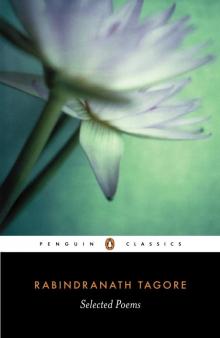 Selected Poems
Selected Poems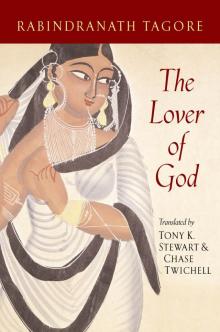 The Lover of God
The Lover of God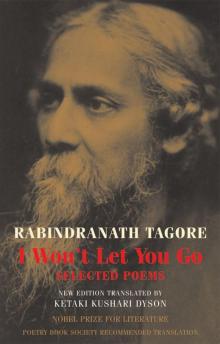 I Won't Let You Go: Selected Poems
I Won't Let You Go: Selected Poems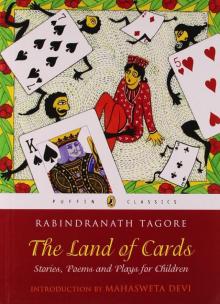 The Land of Cards: Stories, Poems, and Plays for Children
The Land of Cards: Stories, Poems, and Plays for Children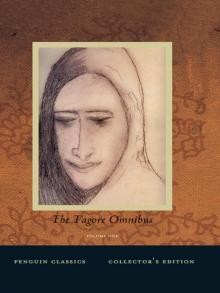 The Tagore Omnibus, Volume One
The Tagore Omnibus, Volume One The Boat-wreck
The Boat-wreck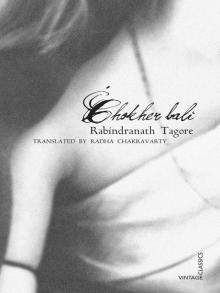 Chokher Bali
Chokher Bali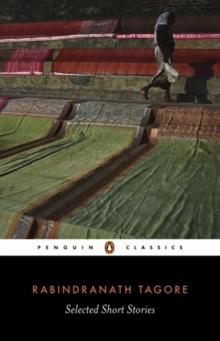 Selected Short Stories
Selected Short Stories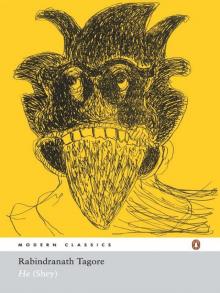 He (Shey)
He (Shey)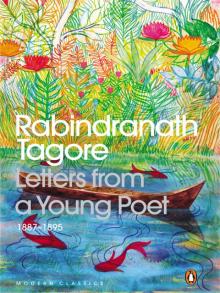 Letters From a Young Poet 1887 1895
Letters From a Young Poet 1887 1895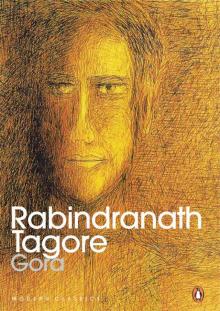 Gora
Gora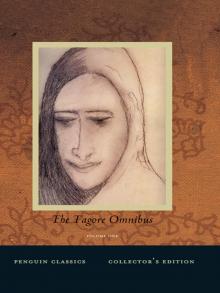 Tagore Omnibus, Volume 1
Tagore Omnibus, Volume 1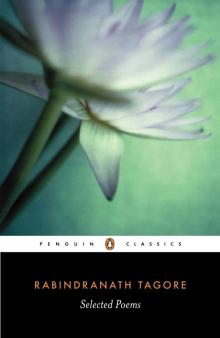 Selected Poems (Tagore, Rabindranath)
Selected Poems (Tagore, Rabindranath)